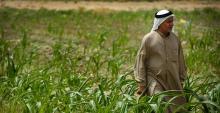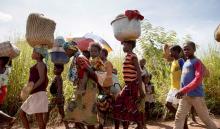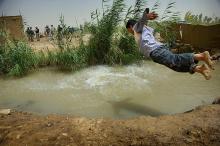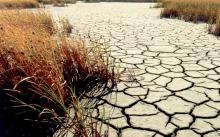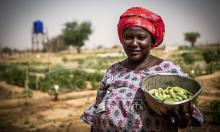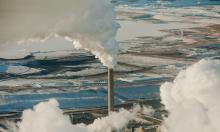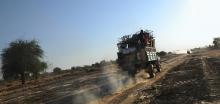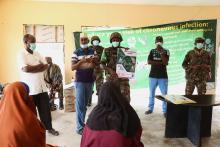The southern region of Iraq is expected to be affected by the rising sea levels caused by climate change. Three projected scenarios simulating the impact on communities and infrastructure are examined in this article. The author proposes adopting nature-based solutions and modern technology to prepare and educate communities affected by the sea-level rise.



